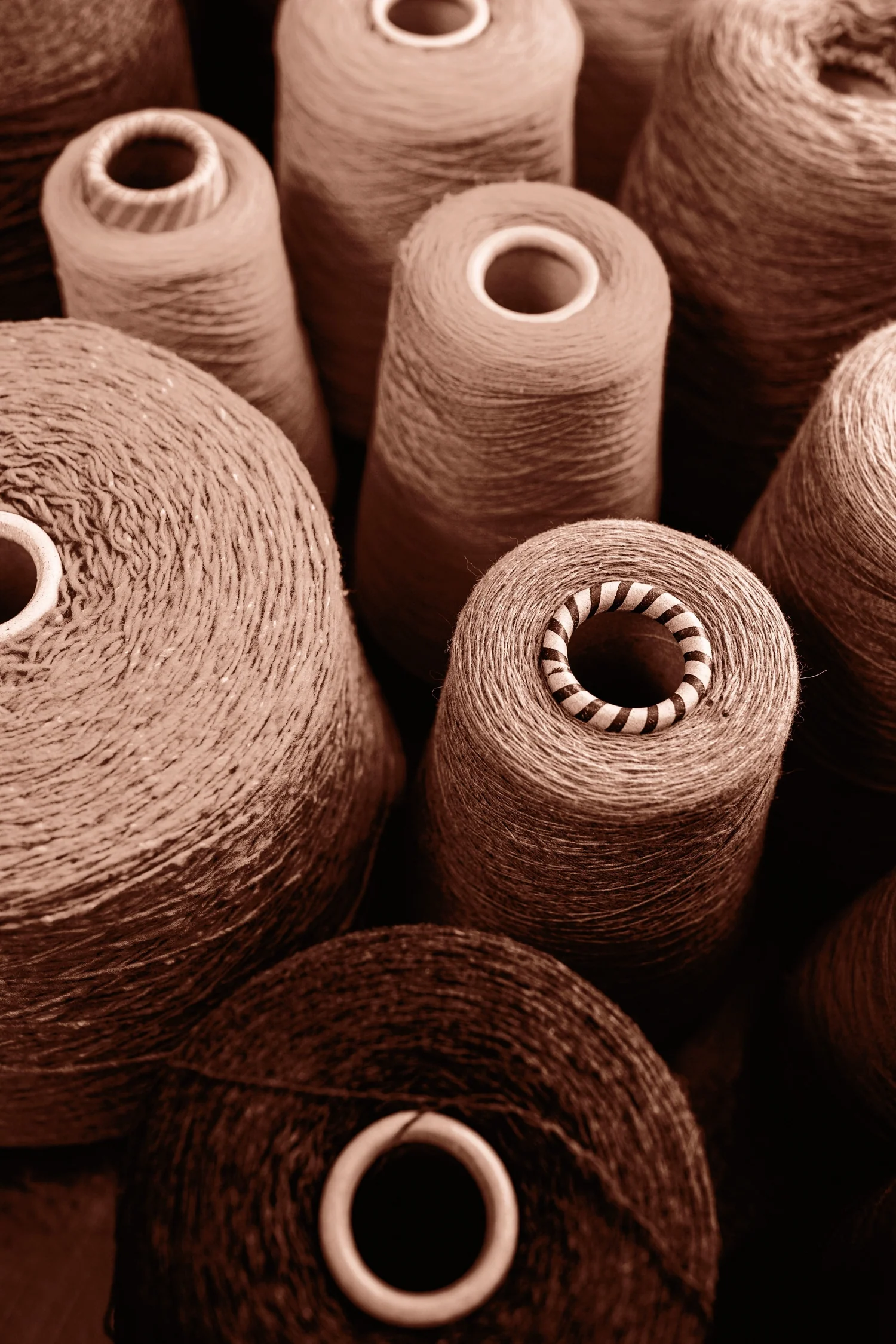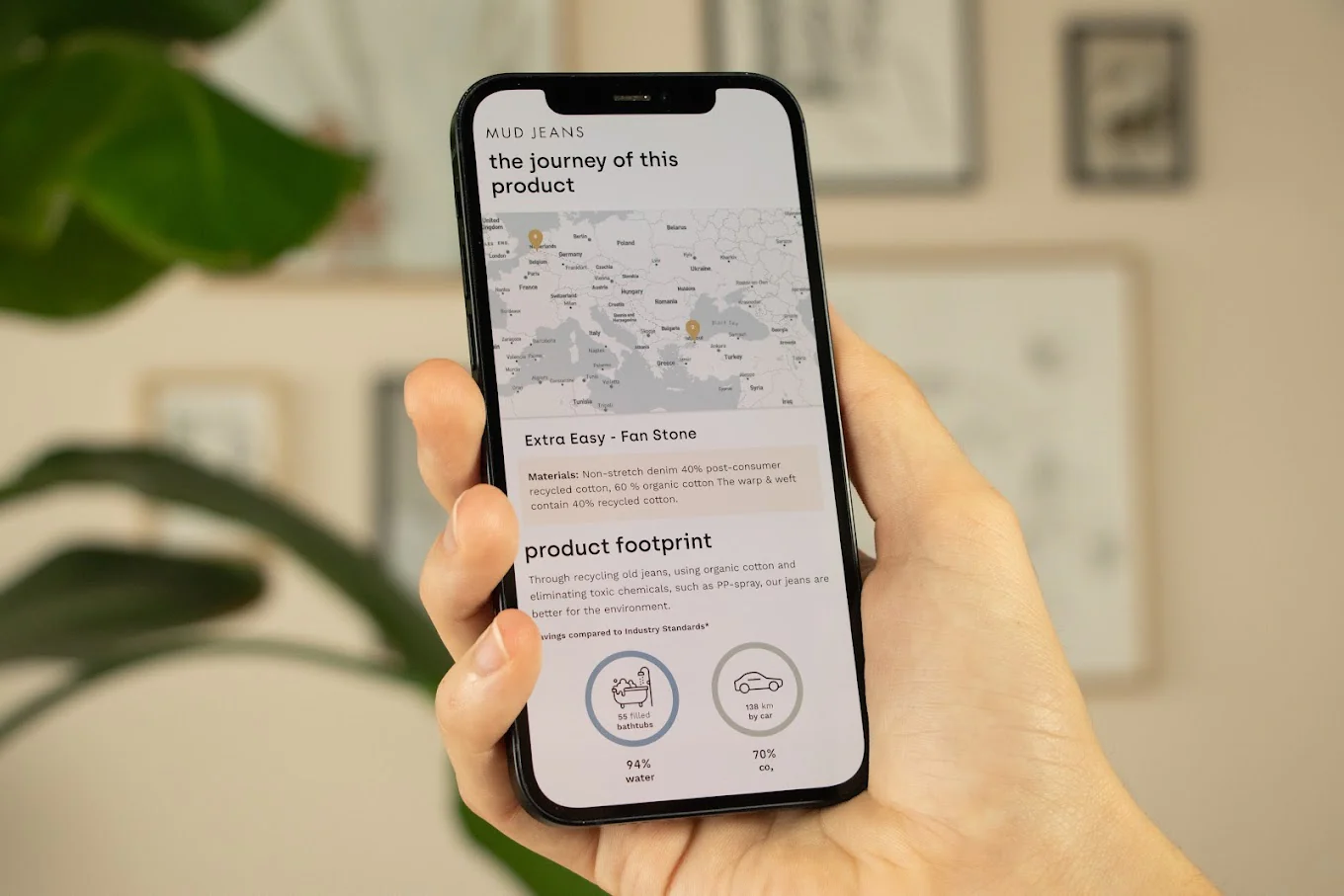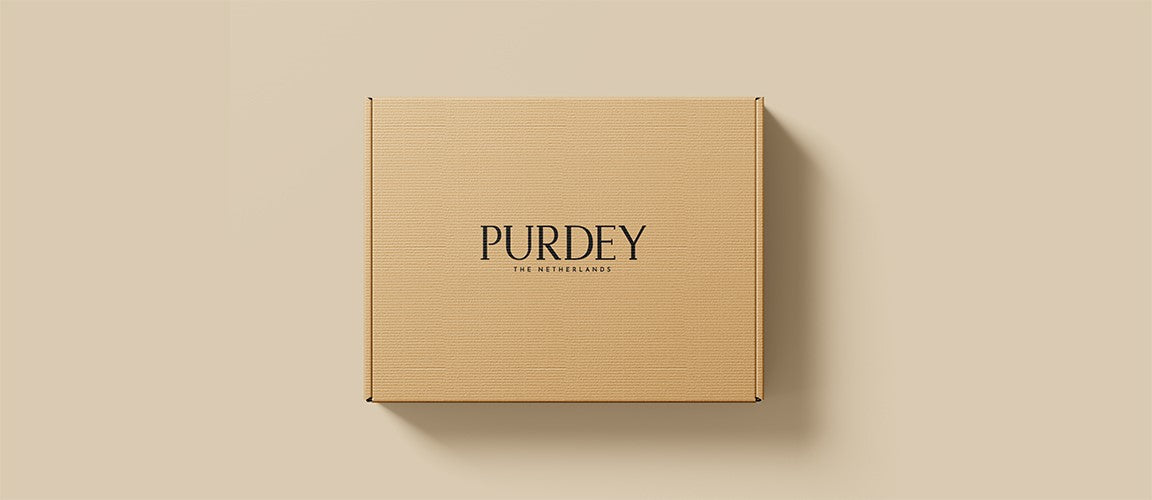NACHHALTIGKEIT
Together, we have a moral responsibility to treat people and nature with care. For us, that means taking good care of each other and the world around us. We also believe transparency is important, which is why we are happy to explain the sustainable choices we make and why we make them. Read more about our vision on corporate social responsibility here.
-
GOAL: A SUSTAINABLE FUTURE
We make a positive contribution in both small and large ways.
We do this in various ways. Examples include producing less waste, recycling more residual materials, and reducing CO2 emissions within the company.
-

-
SUSTAINABLE COLLECTIONS
Purdey produces high-quality, timeless items that last for several seasons.
Each season, we carefully and meticulously put together a limited collection. We keep only a very small percentage of these items, which we donate to charity.

SUSTAINABLE MATERIALS
Producing clothing requires water, energy, chemicals, and agricultural land. This naturally has an impact on the environment. Purdey wants to treat the world with respect and, where possible, we use recycled raw materials. These include wool, organic cotton, linen, and hemp.
Collapsible content
Organic cotton
Cotton is made from the soft fibers of the cotton plant. When growing organic cotton, only natural fertilizers such as compost and animal manure may be used. Chemical agents are therefore not used in the production process of organic cotton. The fact that organic cotton is more sustainable than non-organic cotton is evident from the reduction in water consumption (88%), chemicals and pesticides (around 72%) and carbon emissions (around 46%).
water use (88%), chemicals and pesticides (around 72%) and carbon emissions (around 46%).
Linen
Linen is a natural, sustainable fiber used to make textiles. No chemicals are needed for this process, and very little water is used in the production of linen. The plant can be grown almost anywhere with few resources and little attention, and it takes about 100 days to grow. What's more, linen is completely biodegradable.
Hemp
Hemp is a sustainable plant that grows quickly, requires few pesticides, and can grow in different climates. Hemp also improves soil health, allowing other crops to be grown immediately after harvest. Hemp is therefore an environmentally friendly choice for many applications. The natural fiber is strong and can be used for many products, including clothing. Hemp is considered the most sustainable natural fiber in the world.
Tencel
Tencel is made from wood pulp sourced from sustainably grown trees, often eucalyptus, beech, or pine trees. It is a natural synthetic fiber with a natural production process. The fabric feels soft but is very strong and durable.
Circular production
Purdey stands for circular principles. When creating new products, we consider the possibility of reuse. We adhere to the following principles:
REFUSE
Our designers are not guided by trends, but create timeless styles. This ensures that Purdey garments will last for years.
REDUCE
We houden slechts zeer weinig voorraad over aan het einde van elk seizoen waardoor we geen overtollige en oude voorraden hebben.
RECYCLE
Wherever possible, Purdey uses recycled raw materials such as wool, organic cotton, linen, and hemp. Every year, we use more recycled materials in our collections.
REPAIR
All our stores work with a tailor who can repair and alter your clothing.
REPURPOSE
Purdey is affiliated with a joint initiative for the UPV. This foundation monitors both the beginning and end of a garment's life cycle. Read more about the UPV here.
RE-USE
Clothes hangers used to transport our clothing from suppliers to our warehouse are returned to the manufacturer after use so that they can be reused.

MANUFACTURERS OF PURDEY
Most Purdey manufacturers are located in the European Union (EU). We have also been working for many years with a number of manufacturers outside the EU who work in accordance with the guidelines of the Business Social Compliance Initiative (BSCI). This is an initiative that was founded in 2003 by a group of companies to improve working conditions in their supply chains. This is particularly important in the fashion industry, as many garments are manufactured in factories in countries where working conditions are not always optimal.
By being a member of the BSCI, fashion companies work together to improve working conditions and promote fairness around the world. These are the most important BSCI rules that we must comply with:
• Ensuring a socially responsible policy
• No discrimination
• Freedom of association
• Fair remuneration, at least the minimum wage
• No child labor and/or forced labor
• Normal working hours
• Special protection for young workers
• Good facilities for a safe and healthy working environment
• Environmentally conscious business practices
• No precarious employment

TEX TRACER
Purdey wants to be transparent about the journey a garment takes from start to finish. With tex.tracer, we know exactly where the material for each item comes from and in which factory the garment was made. This also allows us to calculate the CO2 foodprint.

PACKAGING AND SHIPPING
We take the environment into account when packaging and shipping clothing. For example, we use recycled materials for shipping clothing and our fashion magazine. We use sustainable shipping packaging: made entirely from paper and fully recyclable.
-
WASTE UTILIZATION & RECYCLING
We will map out waste usage and thereby reduce the amount of residual waste. Most of this is recyclable, such as paper, cardboard, and plastic.
-
ENERGY CONSUMPTION WITHIN THE ORGANIZATION
We aim to reduce the amount of energy required within the organization through smart solutions. Our head office does not use gas, only electricity, partly generated by solar panels. Purdey stores are equipped with LED lighting. The energy purchased for the stores is exclusively green, sourced in Northern Europe and the Netherlands.
-
POSITIVE IMPACT ON PEOPLE AND COMMUNITIES
Human rights are our top priority, both within the production chain and the distribution chain. Where necessary, we adapt our working methods accordingly. In this way, we continue to ensure fair working conditions and equal treatment of employees within our international value chain and our own company.

